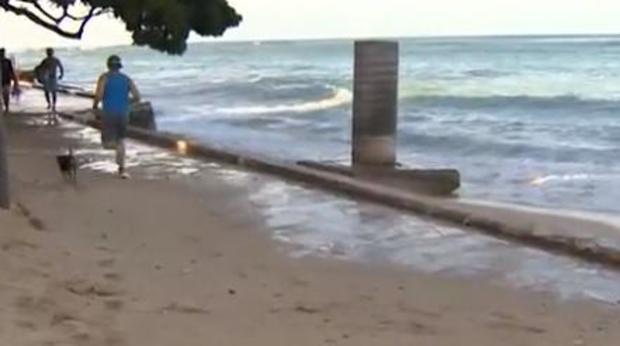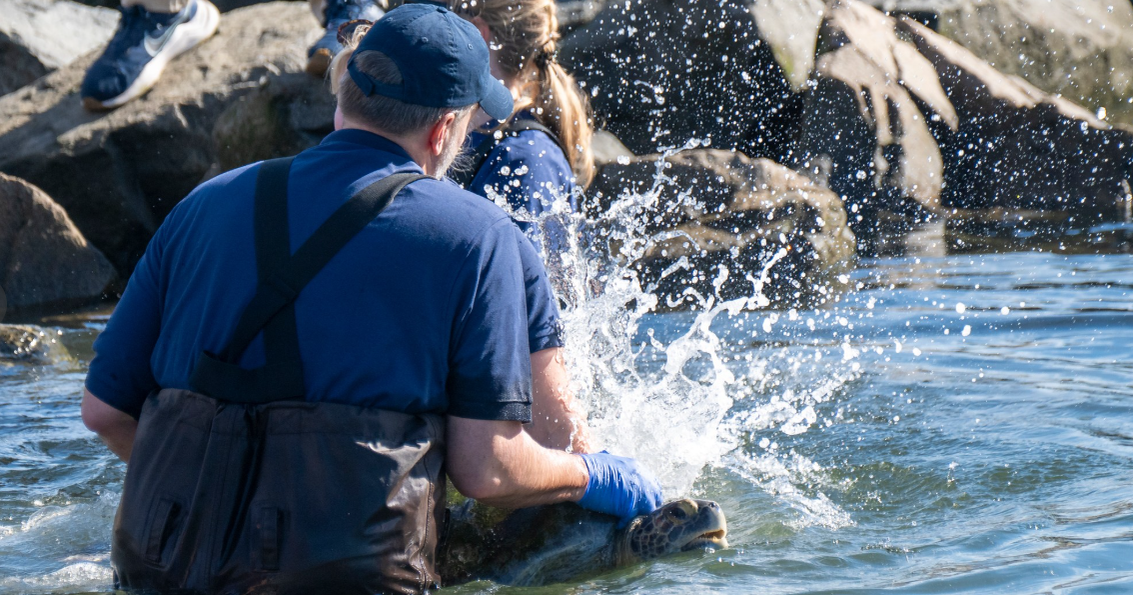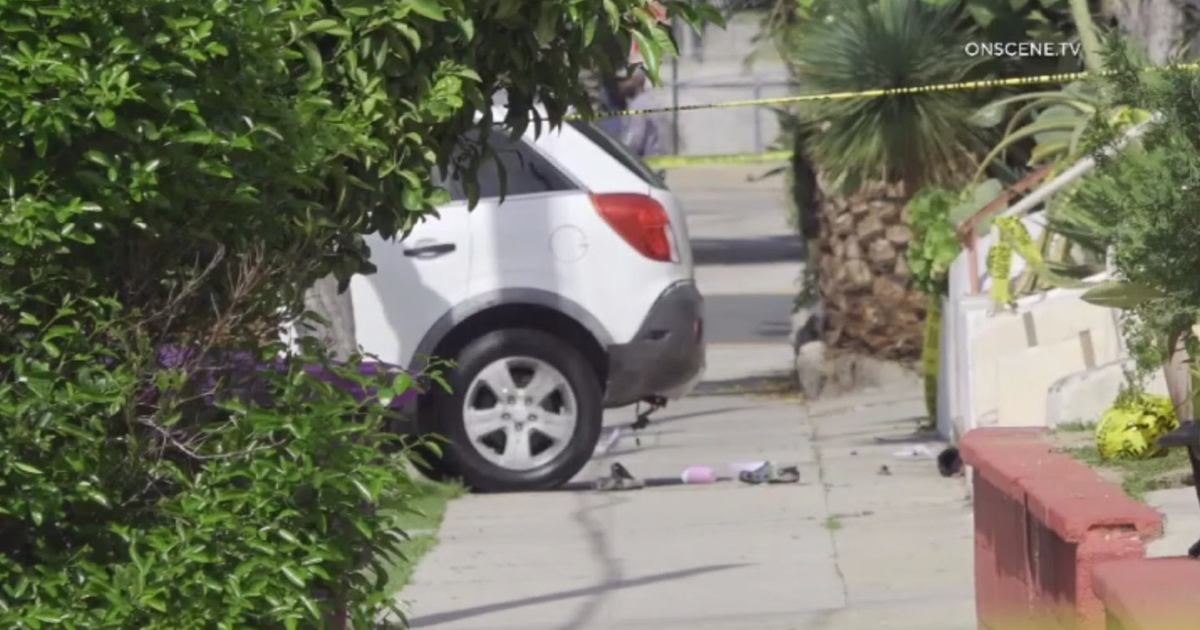Sea level rise could cost Hawaii up to 40% of its beaches by 2050, study shows
As much as 40% of Hawaii's beaches could be lost to sea level rise by 2050, a new study predicts. CBS Honolulu affiliate KGMB reports the research, by the University of Hawaii's School of Ocean and Earth Sciences, also looked at the impact of beach hardening — building groins and sea walls to unnaturally maintain beaches and retain shorelines.
A previous study by the school showed how sea walls can accelerate erosion and predicted that almost 25 miles of beaches on Oahu could disappear if practices don't change.
The new study points out that sea level rise is speeding up and estimates seas could rise by nearly 10 inches over the next 30 years. Researchers suggest the outlook wouldn't be good if Hawaii keeps hardening its beaches.
They identified the locations most at risk if current hardening practices continue.
The most threatened properties fall into an "administrative erosion hazard zone," an area likely to experience erosion hazards and qualify for an emergency permitting process to harden the shoreline.
"By assessing computer models of the beach migration caused by 9.8 inches of sea-level rise, an amount with a high probability of occurring before mid-century, we found that emergency permit applications for shoreline hardening to protect beachfront property will substantially increase," said SOES graduate researcher Kammie Tavares.
The researchers want a government program to help transition shoreline property owners out of their doomed locations and develop a long-term plan to stay out of the way of natural beach migration.
"Beaches are critical ecosystems to native plants and animals, offer protection from storms, are an essential cultural setting, and attract tourists, who are important for Hawaii's current economy," added Tavares. "This research shows that conversations on the future of our beaches and how we will care for them must happen now rather than later if we are to protect our sandy beaches."




